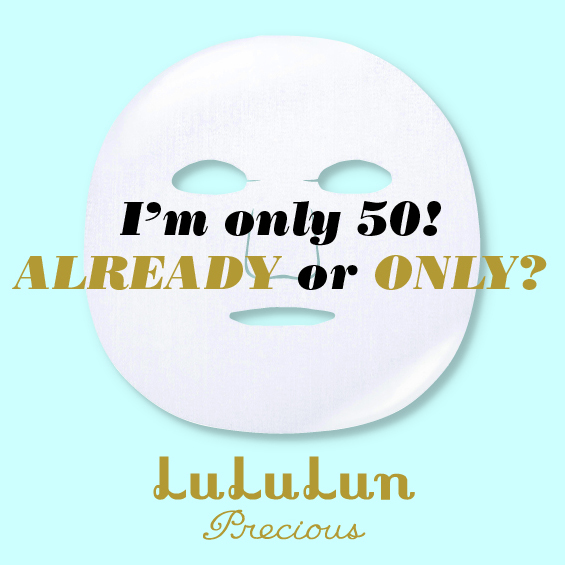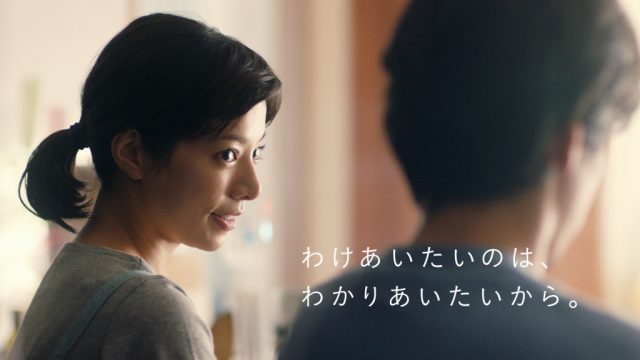
- Expertise
Branding
1. Summary
This campaign to promote anti-aging skincare face mask Lululun produced by Glide Enter Prize, focused on the subtle difference implicit in a simple choice of words when talking about one’s age: “only” and “already.” The aim was to encourage women to think positively about their age by investigating the relationship between an optimistic outlook and youthful appearance.By combining scientific research with the testimony of real women, the campaign garnered widespread media coverage, helping sales reach 234% of the previous year’s total, and contributing to an increase in the number of Japanese women prepared to think positively about their age.
2. Statement of Problem
In 2011, Japanese E-commerce operator Glide Enter Prize developed “Lululun,” an affordable cosmetic face mask aimed at young women in Japan.
A leveling in sales signaled that it was time to approach a new demographic: women in their 40s and 50s. As this segment is highly discerning when it comes to skin care products, communications had to go beyond simple promotions. Glide Enter Prize launched the “Precious” line of Lululun in December 2015 targeting these women in Japan.
We wanted to increase the number of women in their 40s and 50s who think positively about their age with the additional aim of increasing the number of consumers who think positively about this product, and thereby boosting sales.
3. Research
For centuries, humility has been considered a virtue in Japanese culture. Because of this, many are self-deprecating when they talk about their age, replying, “I’m already X years old.” Others reply more positively; “I’m only X old.” We focused on the difference between people who responded negatively about their age, as opposed to those who responded positively.
We discovered that women who were more positive about their age had measurably younger-looking skin. The average skin age of respondents who used “I’m only…” was as much as 7.1 years lower than those who used “I’m already…”Through our campaign, we wanted to surprise women with this fascinating data.
4. Planning detail
- Communications objectives:
The aim of the campaign was to convey our survey findings to women, and thereby encourage them to think positively about their age. We wanted women to understand that they can influence their outward age by changing their attitude. It was hoped that they would form an emotional connection to the product.
- Measurable objective:
As well as boosting understanding of the benefits of Lululun, we wanted to achieve an attitude change in our target audience. It was hoped that women’s new, positive outlook on their age, would be reflected in increased sales.
- Target audiences:
Target audiences to be reached were women in their 40s and 50s. The geographical target market was Japan.
- PR messages to target audiences:
The key message was that we should think positively about our age. Women who are more positive about their age have measurably younger-looking skin. The average skin age of respondents in our survey who used “I’m only…” was as much as 7.1 years lower than those who used “I’m already…”
- Communication tactics used:
We chose ‘80s teen pop star Iyo Matsumoto, now in her 50s, to represent this campaign. She was cast as spokesperson for the “I’m only x years old” group and helped to communicate our message of positivity about one’s age to our target audience.Consultation with management to secure its support
5. Execution
In October 2015, we tested the skin of 15 women aged 50-59 who saw themselves as “only 50” and 15 women aged 50-59 who saw themselves as “already 50” using Robo Skin Analyzer, a medical apparatus used at skin clinics. Five skin criteria were examined: moisture, oiliness, number of pores, texture and areas of discoloration.
80s teen pop star Iyo Matsumoto changed the lyrics of her original hit song “I’m only 16” to “I’m only 50,” and the new song was featured in TV commercials, released as a single, and featured extensively at events at shopping malls and in in-store displays around Japan.
The product name Lululun was chosen to evoke a sense of youthful exuberance, and the product – though high quality – was launched in a price bracket that appealed to younger women. However, a leveling in sales signaled that it was time to approach a new demographic – women in their 40s and 50s – and as this group is highly discerning about skin care products, communications had to go beyond simple promotions.
6. Outcome and Evaluation
The most impressive aspect of this campaign was how many Japanese women began to perceive themselves differently. The positive public response to our survey’s unprecedented findings encouraged women across the country to think more optimistically about becoming older. Follow-up online surveys indicated that the proportion of 50-something women who saw themselves as “only 50” rather than “already 50” increased massively from 25.8% to 52.3% after the launch of this campaign.
By combining scientific research with the testimony of real women, the campaign garnered widespread media coverage, and was featured on 19 TV shows, over 2500 tweets, and 446 websites, including Yahoo! Japan News and grape, Japan’s most popular social news site.
This campaign helped Lululun’s sales for 2015 to reach 234% of the previous year’s total. One rival cosmetics firm was even moved by Lululun’s impressive sales to release a similar product. However, Lululun remains the top selling cosmetic face mask in Japan.
受賞歴
- 2016 SABRE Awards Asia-Pacific
2016DIAMOND SABRE AWARDS in SUPERIOR ACHIEVEMENT IN RESEARCH AND PLANNING
2016GOLD SABRE in MARKETING TO CONSUMER (NEW PRODUCT)
2016In2SABRE WINNER of CREATION OF PERSUASIVE CONTENT
- WOMMY Awards 2016
2016Bronze in Introduction category



